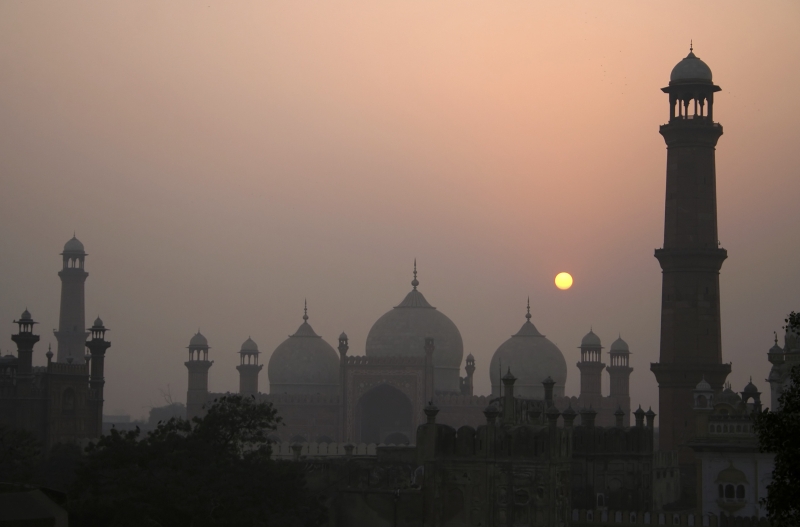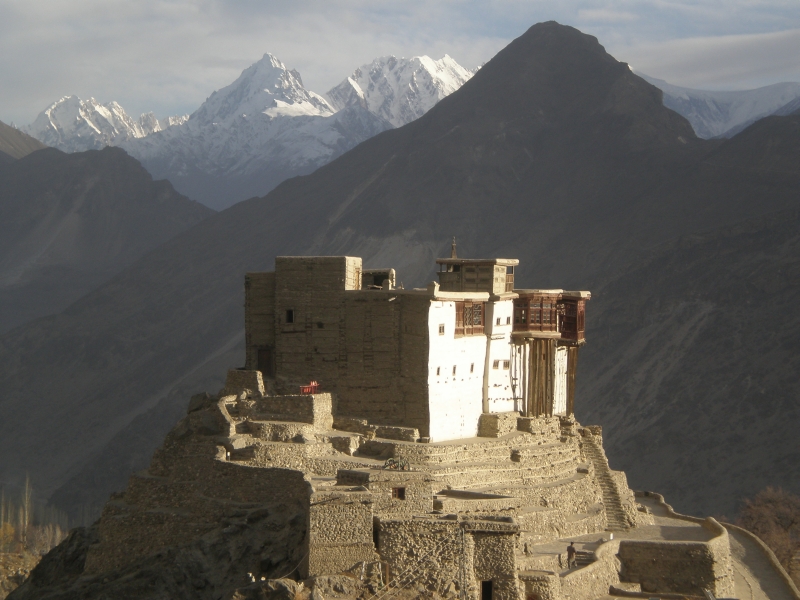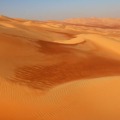Pakistan is a vibrant and culturally diverse country characterized by its rich history, breathtaking landscapes, and warm hospitality. With a population encompassing various ethnicities, languages, and traditions, Pakistan offers a tapestry of experiences, from the bustling streets of its metropolitan cities like Karachi, Lahore, and Islamabad to the serene valleys of the northern regions like Swat, Hunza, and Gilgit-Baltistan. Its cultural heritage, deeply rooted in centuries-old traditions, manifests in its music, art, literature, and cuisine, showcasing a blend of influences from Mughal, Persian, and Indus Valley civilizations. Moreover, Pakistan’s geopolitical significance, marked by its position as a gateway between South Asia, the Middle East, and Central Asia, shapes its global relevance, contributing to its dynamic and evolving identity on the world stage.
Lahore
 Skyline of Lahore, a city which has been a cultural center of Asia for centuries. image-bird/shutterstock |
Lahore, the cultural heartbeat of Pakistan, stands as a captivating blend of history, modernity, and vibrant energy. Renowned for its rich Mughal heritage, this bustling city in the province of Punjab boasts architectural marvels like the majestic Badshahi Mosque, the intricate Lahore Fort, and the enchanting Shalimar Gardens, which echo the opulence of its past. The city’s labyrinthine streets are adorned with bustling bazaars, aromatic food stalls, and an array of historical sites, such as the Lahore Museum and the lively Walled City. Lahore is not only a testament to the country’s past but also a hub of creativity, with its thriving arts scene, lively festivals, and a culinary landscape celebrated for its delectable street food and traditional dishes.
The Karakoram Highway
 Baltit Fort in the Hunza Valley. The Hunza Valley inspired the novel “Lost Horizon” which described Shangri La. |
The Karakoram Highway (KKH), a marvel of engineering, traverses through Pakistan’s majestic landscapes, connecting Islamabad to the ancient Silk Road in China. This high-altitude road, stretching over 800 miles, winds its way through the rugged terrain of the Karakoram mountain range, showcasing breathtaking vistas of snow-capped peaks, valleys, and glaciers. Originally constructed as a link between Pakistan and China in the 1960s, the KKH holds historical significance due to its strategic trade route. Along this legendary highway, travelers encounter several significant towns and landmarks, such as Abbottabad, a city renowned for its lush greenery and as the gateway to the Himalayas; Gilgit, a cultural hub surrounded by the stunning Gilgit River and notable for its lively markets; and Hunza Valley, famous for its captivating scenery, traditional villages, and the ancient Baltit Fort. This centuries-old fort, perched majestically above Karimabad, stands as a symbol of Hunza’s rich heritage and offers panoramic views of the surrounding valleys and mountains, attracting visitors with its fascinating history and architectural beauty.
Islamabad

Shah Faisal mosque, the forth largest mosque in the world. Islamabad was built in the 1960’s to replace Karachi as the nation’s capital. thomas-kauroff/shutterstock
Islamabad, the capital city of Pakistan, offers a unique blend of modernity, natural beauty, and meticulous urban planning. Established in the 1960s to serve as the country’s capital, Islamabad boasts wide, tree-lined avenues, lush green spaces, and an organized layout of sectors and zones. The city’s architecture is a fusion of modern design and Islamic aesthetics, highlighted by landmarks like the Faisal Mosque, an iconic structure with its striking contemporary design and the largest mosque in Pakistan, serving as a symbol of the nation’s cultural and religious identity. Islamabad serves as the political and administrative center, housing government institutions, diplomatic missions, and international organizations. Additionally, its proximity to the Margalla Hills National Park offers residents and visitors opportunities for outdoor activities, hiking trails, and panoramic views of the city.
Derawar Fort

thomas-kauroff/shutterstock
Derawar Fort, an imposing and ancient structure situated in the heart of the Cholistan Desert in Pakistan’s Punjab province, stands as a testament to the region’s historical legacy. Believed to have been built in the 9th century by Rai Jajja Bhatti, its exact origins remain shrouded in mystery, with subsequent renovations carried out by various rulers, including the Nawabs of Bahawalpur in the 18th century. The massive fortress boasts a formidable 40-meter high wall with towering bastions, creating an impressive sight against the barren desert landscape. The square-shaped fort, with its captivating and intricate geometric patterns adorning its walls, serves as a reminder of the area’s strategic importance in safeguarding trade routes and served as a key defense post.



